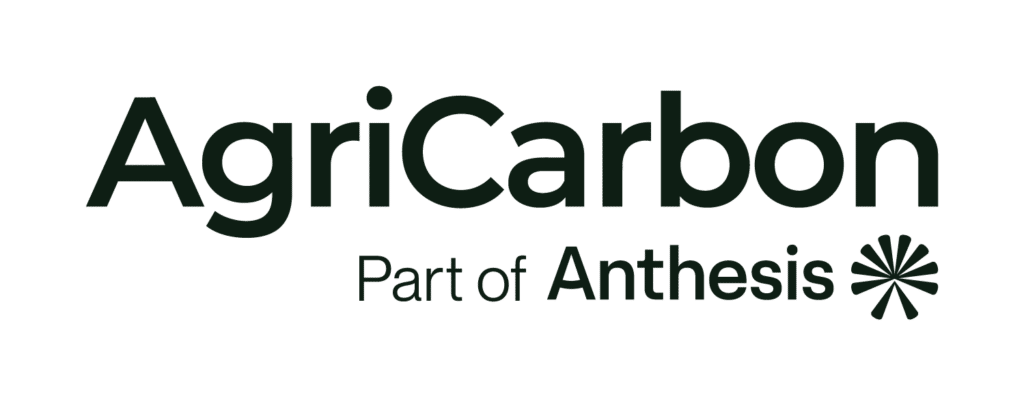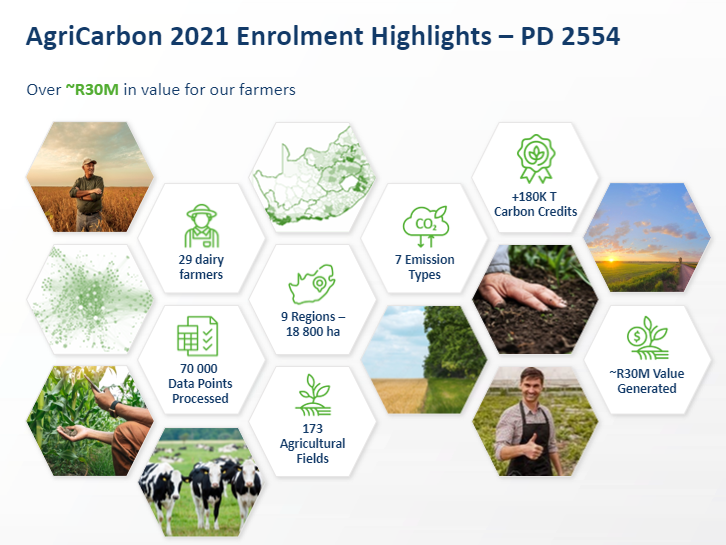In 2021, 29 dairy farmers from the Eastern Cape and KZN, some 18,788 hectares, enrolled into the first window of the AgriCarbonTM programme. This was facilitated through our partnerships with leading agricultural sustainability organisations Trace & Save and Intelact.
These pioneering farmers were eligible for the programme as they had shifted to more sustainable farming practices such as reduced soil tillage and planting of cover crops over the last few years. In addition, all the required soil samples and farming data was provided to CNG in order to model and calculate the amount of carbon sequestered. This first enrollment window is expected to produce 182,909 tons CO2e in soil carbon credits.
Mark Rubin, Lancewood farm owner and one of the first AgriCarbon farmers, says “We’ve always believed the soil is king and the better you work with nature and the better you work with the soil, you’ll get returns from that.” Lancewood has more than halved its nitrogen use per hectare per year since 2018 – according to research consultancy, Trace & Save.
After an extensive and thorough auditing process conducted over the past 13 months by independent and highly rated carbon auditors, SCS Global, we are pleased to announce that the project has successfully completed validation and verification and has been submitted to Verra for registration.
Only once the project has been successfully registered with Verra, can the carbon credits be issued. Since CNG opted to conduct a combined validation and verification process, this means that the carbon credits will be issued very shortly after registration of the project with Verra, shortening the time to issuance and payout of the carbon by at least a year. This registration and issuance process is expected to take at least 3 months, depending on the turnaround time at Verra.
Including multiple farms under AgriCarbon substantially reduces carbon development and auditing costs per farm, thereby maximising income to farmers. By joining AgriCarbon, farmers avoid the complexity and high-cost barriers of certifying carbon credits themselves, allowing them to focus on the health of their soil and business.


